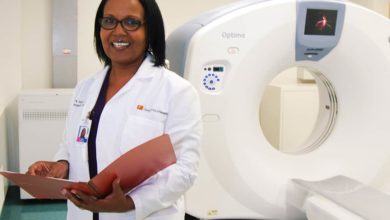Medical school letters of recommendation are a vital part of showcasing your soft skills and best qualities. Here’s who, when, and how to ask for yours.
Table of contents
As an undergrad applying to med school, admissions committees will be looking at your letters of recommendation for a sense of your character and work ethic. These qualities show your potential beyond academic metrics like GPA and MCAT scores.
Strong letters of recommendation should highlight your interpersonal skills, resilience, and dedication to the field of medicine. They will be viewed as an endorsement of your readiness for graduate school and the demanding journey ahead in medical training.
Aim to secure at least 2 letters from science professors and 1 from a non-science professor or someone who supervised you in an extracurricular activity. This mix ensures a well-rounded view of your capabilities and character.
Use our databases to find letter of recommendation requirements by MD & DO med school admissions.
Our expert admissions advisors are ready to help you identify your application’s strengths and weaknesses and help you boost your chances at acceptance.
There are 3 types of letters accepted by AMCAS:
- The Committee Letter: A representation of your institution’s comprehensive evaluation of your readiness for medical school, including letters from professors and your pre-health office.
- The Letter Packet: A collection of letters without an evaluative component from your pre-health committee.
- The Individual Letter: A personal endorsement from a single author. If an Individual Letter is part of a Committee Letter or Letter Packet, a separate entry for it isn’t necessary.
You Need Between 3-6 Letters of Recommendation
While the minimum for most schools is usually 3, competitive applicants often submit 6 letters of recommendation. Always verify each school’s specific requirements and use the appropriate application system to assign different letters to various programs.
A typical breakdown of these 6 letters includes 2 from science professors, 1 from a non-science professor, and up to 3 additional letters from principal investigators, doctors you’ve shadowed, or community members.
Who to Ask
When deciding who to ask for medical school letters of recommendation, prioritize those who know you very well and can provide genuine, positive reflections on your character and abilities.
You want to have an authentic connection with these individuals. If you don’t, it will be evident in their letter. A letter from a well-known researcher or a contact at a prospective school can be beneficial, but only if they can speak to your qualities in a meaningful and sincere way.
Pick individuals you have interacted with regularly through classes, office hours, or extracurricular activities.
Avoid asking those who might not know you well, regardless of their stature. Admissions committees can sniff out the depth of your relationship through the letters, and any hint of empty platitudes could be detrimental to your application.
LISTEN: Podcast Episode 32: Letters of Recommendation | ProspectiveDoctor
When to Ask
For those of you in the traditional junior year application cycle, aim to have your requests out by December, well ahead of the spring application season. If you’re on a nontraditional path or considering a gap year, adjust this timeline accordingly.
I can’t stress enough the importance of asking early. February might seem early, but it’s the perfect time to approach your chosen writers. This gives them ample time to reflect on your strengths and compose a letter that truly showcases your potential.
Remember, these folks are often juggling multiple requests, so the earlier you ask, the better.
Should your letter writer be running behind, a gentle nudge is perfectly acceptable. However, if there’s no response, it’s wise to have a backup plan to keep your application on track.
While you can submit your med school application without all your letters in place, make sure they’re uploaded by the time your chosen schools start their review process. A good rule of thumb is to ask 3-4 months in advance of your application deadline.
Late requests can not only stress out your letter writers but also might not cast the best light on your planning skills. Remember, you’re not just a prospective medical student; you’re a future medical professional, and foresight is a key part of the role.
How to Ask
Ask in Person if Possible
Whenever you can, ask for your letter of recommendation in person. This approach helps maintain the sincerity of your relationship with the professor or supervisor. If an in-person meeting isn’t feasible, then an email is your next best option. Try not to come off as transactional when writing your message.
Gauge Their Willingness
It’s crucial to ensure that your potential recommender feels confident in writing you a strong letter. If they express any hesitation or doubt about their ability to provide a strong endorsement, it’s respectful and wise to seek another letter writer.
Provide Supporting Materials
Be ready to supply your letter writer with your resume, transcript, personal statement, and any other relevant documents. These materials help them craft a more comprehensive and personalized letter.
If they request a one-on-one meeting to understand your aspirations and achievements better, take the opportunity to reinforce your strengths and goals.
LISTEN: Podcast 63: Letters of Recommendation for the PreMed Virtual Summit | ProspectiveDoctor
Offer Logistical Support
Make the process as smooth as possible for your letter writer by providing any necessary envelopes, consent forms, or other logistical items. Your aim should be to minimize hurdles so they can focus on highlighting your best qualities.
Show Your Gratitude
After your letters have been submitted, don’t forget to send a thank you note to each of your recommenders. This gesture of appreciation acknowledges their time and effort in supporting your med school journey, fostering a lasting positive impression, and deepening that connection.
What to Include with Your Request
When requesting a letter of recommendation, include the following to make it as easy as possible for your letter writer to produce exactly what you need (and on time):
- Your resume: Offers a snapshot of your academic and extracurricular achievements.
- Transcript: Helps the recommender understand your academic background.
- Personal statement: If available, your personal statement provides insight into your motivations for pursuing medicine.
- List of achievements: Highlights any awards, recognitions, or unique contributions relevant to your application.
- Details of the medical schools: Information about the schools you’re applying to, including any particular focus or programs of interest.
- Accurate letterhead information: The letterhead should ideally be official, featuring the institution or organization’s name, logo, and contact information where the recommender is affiliated, such as their university, hospital, or professional practice.
- Consent Forms: If required by your school or the application system, to authorize the release of your information.
- Deadline Information: Clearly indicate when each letter is due to ensure timely submission.
- Instructions for submission: Whether the letters should be submitted online or mailed, provide clear instructions.
Supplementing your request with these items not only makes the process easier for your recommender but also ensures they have all the necessary information to write a compelling and personalized letter.
How Application Letter Services Work
Services like AMCAS, AACOMAS, and TMDSAS exist to help make things a bit more streamlined. Here’s how they work:
- AMCAS: Enter your recommenders’ contact information into your AMCAS application, and they’ll receive precise instructions for submitting their letters. Remember to provide them with the AMCAS Letter Request Form, generated once you add their details. AMCAS then efficiently forwards these letters to your selected med schools, with rare exceptions.
- AACOMAS: For those aspiring to join D.O. programs, AACOMAS simplifies the process. After listing your recommenders, they’ll receive an email from [email protected] with a direct link to upload their letters, ensuring a seamless submission process.
- TMDSAS: Similar to the other services, TMDSAS offers a straightforward approach for Texas med school applicants. Your recommenders will be guided on submitting their letters directly once you’ve provided their information in your application.
If you’re applying to programs through one or more of these application systems, consider using a letter service like Interfolio. To make it easier for the letter writer, you can create an Interfolio account, and then the letter writer can submit their letter (just one) to the service. Once it is stored in Interfolio, you can distribute it to the applications you’re using.
FAQs
When are letters of recommendation due in the application cycle?
Letters of recommendation are a part of the primary application process. They should ideally be requested by December before your application cycle and submitted early in the spring of your junior year to avoid delays.
Some schools might request additional letters of evaluation during the secondary application, so it’s important to review each school’s requirements carefully.
Can people other than professors submit letters?
Yes, besides professors, letters can come from principal investigators, doctors you’ve shadowed, or community members, offering diverse insights into your character and abilities.
What if I’m not a science major?
Even if you’re not a science major, aim for a mix of letters, including at least 2 from science professors, to align with med school expectations.
Should I waive my right to see letters?
Always waive your right to see the letters. It assures the school of medicine’s admissions committee of the candor and authenticity of the recommendations.
How old can letters of recommendation be for medical school?
Letters of recommendation for medical school should be as current as possible, ideally within a year or two of your application. While there’s no strict “expiration date,” older letters are usually seen as less relevant. That’s especially true if they don’t reflect your most recent accomplishments and experiences.
Remember, application systems don’t retain letters from previous cycles, so you’ll need to resubmit or update them if reapplying.
Should a DO physician write my LoR for applying to DO programs?
Yes, having a DO physician write a letter of recommendation can be particularly beneficial when applying to DO programs. It demonstrates your exposure to and understanding of osteopathic medicine.
Should my letters be addressed to individual schools?
No, letters should traditionally be written to be appropriate for any medical program admissions committee to review. Each program you apply to will be able to see the same letters.
Can submitted letters of recommendation be edited or deleted?
No, once a letter has been submitted through your application’s writing service, it may no longer be edited or deleted.
How many recommendation letters can I upload to AMCAS?
While the number of letters AMCAS allows is up to 10, we recommend aiming for around 6 well-chosen letters to provide a focused view of your qualifications.
Can I add new letters after submitting my primary application?
Yes, you may add new letter writers to your application after submitting it. Avoid adding more than 6 letters, and don’t ask for more letters that have nothing new to add to the most impressive ones you already requested.
What counts as a non-science letter of recommendation?
A non-science letter typically comes from a professor in a field outside of science courses, such as humanities, social sciences, or arts. Make sure to ask a non-science faculty member who can speak to your critical thinking, communication skills, and personal character.
What makes a strong letter of recommendation for medical school?
A strong medical school recommendation letter showcases your personal competencies, clinical experience, teamwork, and dedication to medicine, backed by genuine examples from a mentor who knows you well.
Get World-Class Medical School Application Consulting
As you navigate the med school application journey, remember that a well-crafted letter of recommendation can make a significant difference to medical school admissions. With careful planning, thoughtful selection of recommenders, and strategic timing, you set the stage for a highly successful application.
If you’re seeking expert guidance on letters of recommendation, crafting a standout personal statement, or any other aspect of the application process, MedSchoolCoach is here to help.
Our team of experienced advisors knows exactly what admissions committees are looking for. Let us help you submit your best application and take the next step toward your dream of becoming a physician.
Schedule a free 15-minute consultation with MedSchoolCoach to learn how we can help boost your chances of success getting into medical school.



